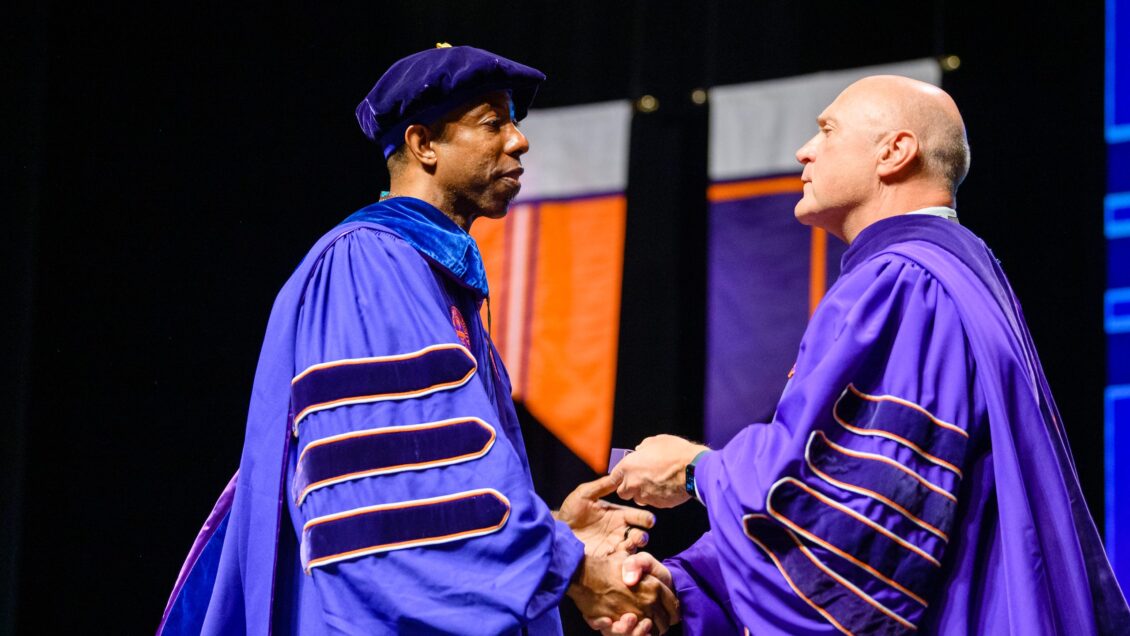The South Asian country of Nepal is about 8,000 miles from Clemson University’s campus in the foothills of South Carolina and, as she was in the air over the Atlantic Ocean from the former to the latter, Prabina Sharma realized just how great that distance was.
Sharma recalls looking at a map and thinking to herself, “Where am I going? What am I doing?”
“I was really scared, but even in the airport people were super helpful. And then when I got to Clemson, it was a really good environment with my lab mates and everyone here,” she said.
Having lost her job in Nepal in the height of the Covid-19 pandemic, Sharma took the chance to pursue her master’s degree, found a job listing online as a graduate assistant and, after a Zoom interview, decided to make the move around the globe from Ghorahi, Nepal, to Clemson.
Now, 2 years later, Prabina is finishing her master’s degree in Forest Resources with a minor in statistics, as well, which included adding a fourth master’s committee member and completing several additional statistics courses.
“It was a huge transition that I’ve experienced all throughout my 2 years here — because I knew nothing. I didn’t even know how to use the keycard system. So, I couldn’t even get into the buildings,” she said. “Even the education system, the way of teaching is totally different than in Nepal, where you’d have one comprehensive exam at the end of the semester, but no other exams or quizzes. Whereas here you have an assignment every week and then have midterms and other exams.”
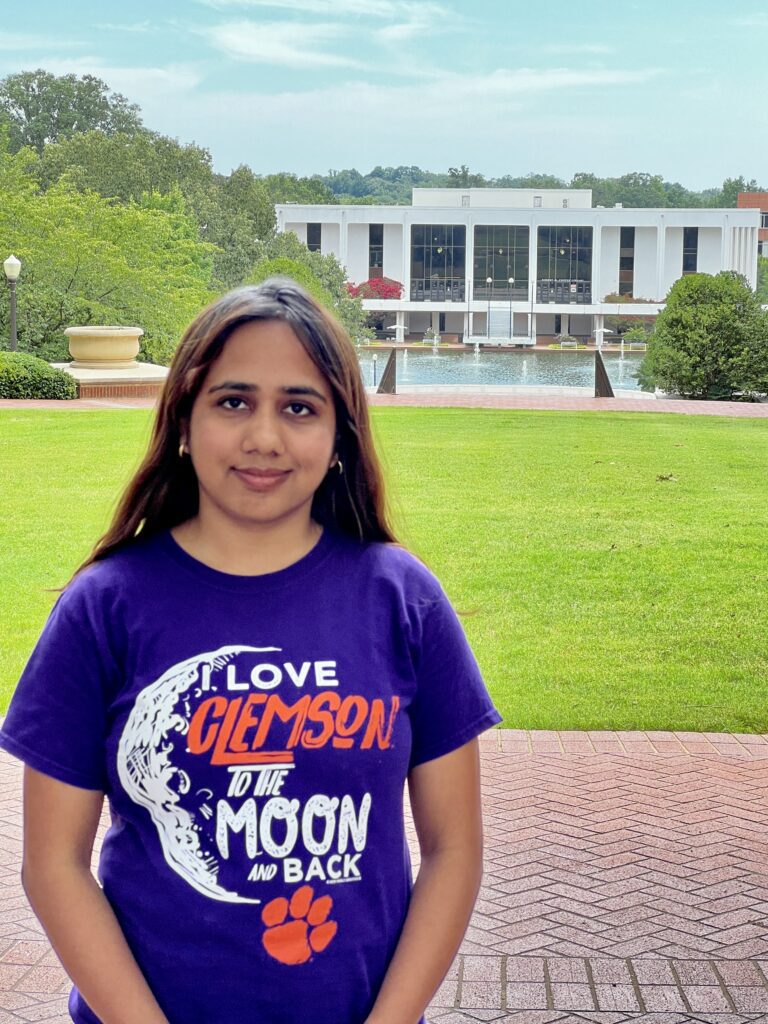
Another challenge, she says, was figure out the transit system and how to use it to navigate campus. But Sharma had no trouble finding friendly faces to point her in the right direction.
“I would go to my teaching assistant and even my lab mate to help me with that,” she said. “The good thing is the people here are super helpful and super nice and offer to help you every time, and that was something I’ve really loved about it here.”
But Sharma says she feels like a new person from the one who arrived at Clemson from Nepal just 2 short years ago. She said the administrative staff of the College of Agriculture, Forestry and Life Science (CAFLS) and coordinators of the Forestry and Environmental Conservation Department “helped me through everything and made me into the person I am now.”
During her time at Clemson, Sharma went to Montana to do hands-on training with researchers at U.S. Department of Agriculture-Agricultural Research Service to learn how to identify insect pollinators for her project and, having zero experience with insect identification, managed to identify more than 500 insects from her samples.
As graduation approached, Prabina said she is interviewing for positions that involve modeling carbon sequestration but is open to pursuing her Ph.D. or other opportunities the future may hold.
“While I was here, I kept learning and kept learning the culture here … and I learned how not to give up and keep trying and then you can do it eventually,” she said. “Now I feel like whatever is next for me — whatever job or whatever country — that I am good with that. That’s the confidence it’s given me.”
___
Julian Nixon
CAFLS Director of Diversity and Inclusion
Atlanta, Ga.; Sumter, S.C.
Ph.D. Animal & Veterinary Sciences
While Sharma was coming from around the world into a brand-new environment to continue her education at Clemson, for Julian Nixon it meant remaining in one he was already quite comfortable with.
Nixon was already a Clemson graduate before he began his Ph.D. and became an employee during his doctoral journal, giving him myriad perspectives into the Clemson experience.
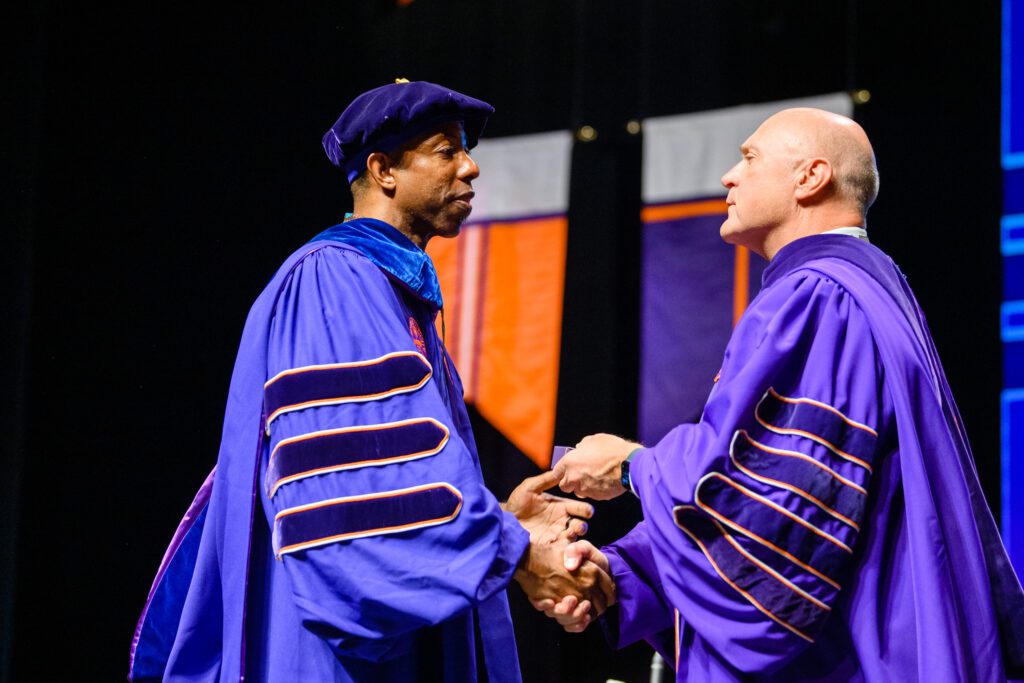
“It has definitely shifted my view on academic policies, campus climate and the graduate student experience,” said Nixon, director of Diversity and Inclusion for CAFLS.
But while Nixon already had plenty of institutional knowledge and well knew his way around campus, he also made it clear that his path to earning his Ph.D. was far from a solo journey.
“No one arrives at success alone. Stories are written and repeated in a way that feels like a single-hero drama, but there were others that made that dream a reality. So, make sure to find your tribe, village or community that will provide a diversity of support along the way. It doesn’t matter what they look like or how they believe — just as long as they believe in you and your dream. You’re going to need it more than you know,” he said.
“Secondly, learn to believe in yourself. Talk to yourself, encourage yourself, become proud of yourself because sometimes you might be the only one in the room to advocate for yourself.”
___
Maslyn Greene
Dallas, Georgia
Ph.D. Animal and Veterinary Science
For Maslyn Greene, the choice to pursue her Ph.D. at Clemson came after her initial roadmap for the future presented an unexpected detour. After applying to veterinary school like many other hopefuls and being rejected in the spring of her senior year as an undergraduate, Greene had no plans for post-graduation and was lost at what her next step should be.
Greene’s adviser encouraged her to go to graduate school and pursue a master’s degree, which she did with the full intention of reapplying to veterinary school when she was finished.
But along the way she discovered something about herself.
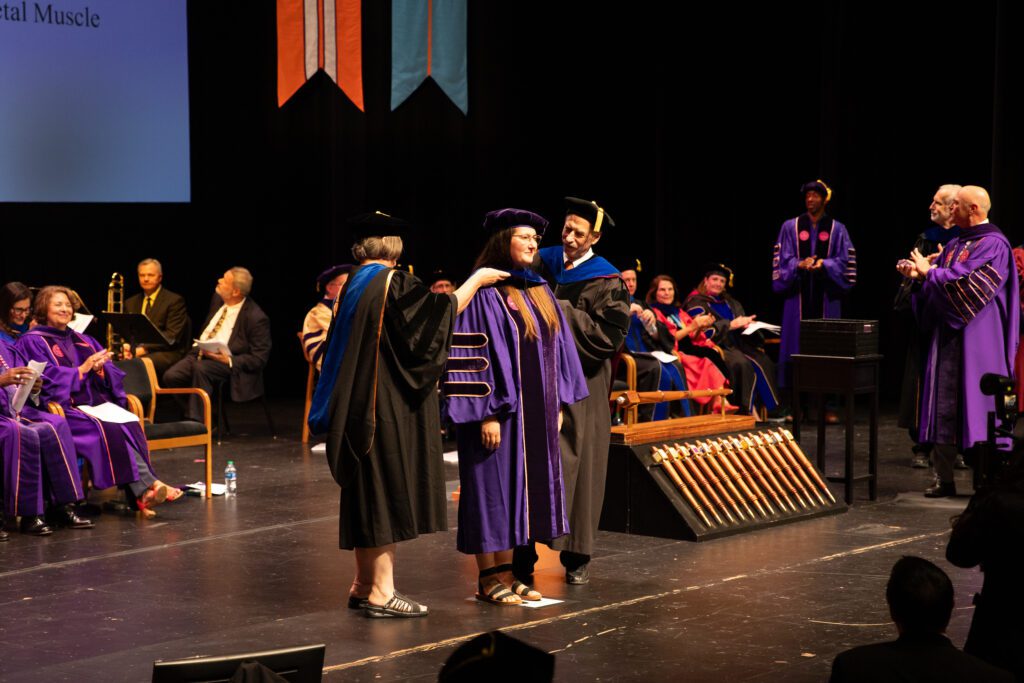
“As I progressed through my first year, I realized that I loved doing research and being a part of experimental science more than I ever enjoyed veterinary work,” she said.
Now, as Greene graduates with her doctorate in Animal and Veterinary Science, her vision for her own future has shifted and she now plans to enter the workforce upon her hooding after accepting a job as the molecular geneticist with the Clemson University Genomics and Bioinformatics Facility.
“This position will allow me to still be involved with research and help others with their projects. My time as a graduate student prepared me for a research position and equipped me with the skills I need to succeed in my future career,” she said.
Because of the somewhat unexpected path her higher educational journey took, it’s perhaps not surprising that Greene’s advice for someone following a similar path is “don’t panic.”
“Find an adviser, friend or family member that you trust and get some sound counsel,” she said. “After that, make a new plan, try that job that sounded hard, or apply to that other school. You are more capable than you think you are, and you never know, the new path you end up on could be better than what you initially set out to do.
“Also, just because your plans or dreams change doesn’t mean you failed at your original goal. Your life isn’t set in stone, so do what makes you happy.”
___
Salman Naveed
Daska, Pakistan
Ph.D. Plant and Environmental Sciences
Clemson’s strong reputation for academic excellence, particularly in the field of agriculture, played a major role in Salman Naveed’s decision to pursue his doctorate here.
But the native of Daska, Pakistan, said it was the university’s commitment to fostering a supportive and inclusive environment that further convinced him it was the right choice to fulfill his academic and personal goals.
“If you are considering following a similar path to mine, I would advise you to carefully consider your interests, passions and strengths,” he said. “It is important to have a clear understanding of what you want to achieve and be willing to put in the necessary hard work and dedication. Embrace challenges as opportunities for growth and be open to learning from both successes and failures. Stay focused, stay motivated and never lose sight of your goals.”
Naveed pointed to having the opportunity to gain hands-on experience working with renowned faculty as particularly memorable from his Clemson journey.
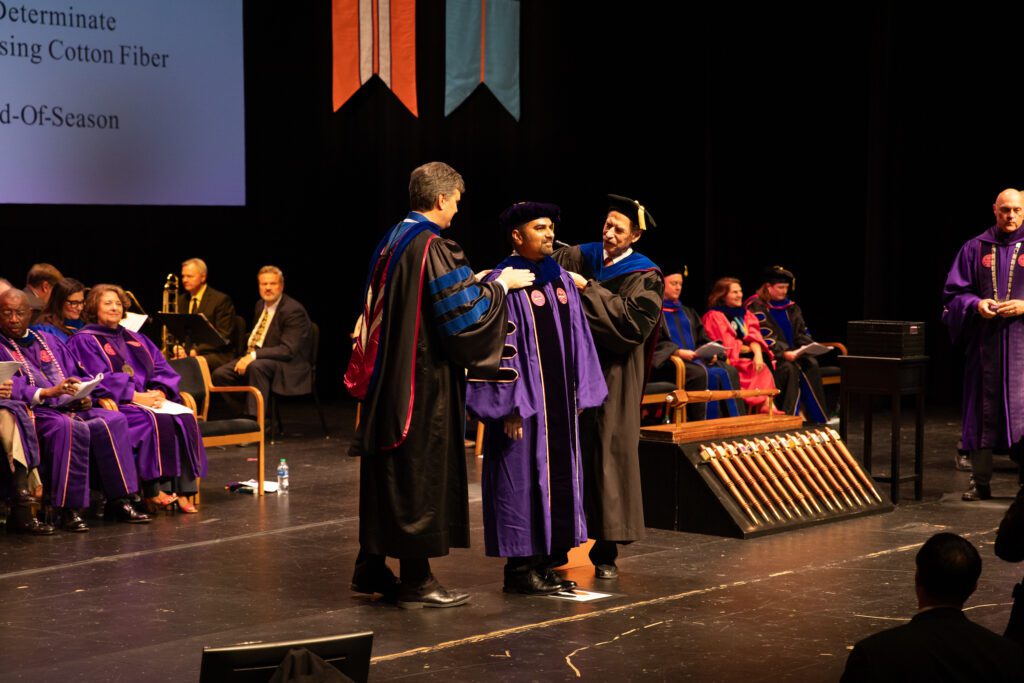
“The countless hours spent working in the lab, conducting experiments and analyzing data challenged me intellectually and pushed me to expand my knowledge and skills. This experience not only solidified my passion for research but also opened doors for future opportunities and collaborations,” he said.
After graduation, Naveed hopes to work to contribute towards the development of sustainable and resilient cultivars that can address the challenges of food security and climate change.
“Through rigorous coursework, hands-on research experiences and access to state-of-the-art facilities, Clemson has equipped me with the necessary knowledge and skills,” he said.
Due to those factors, Naveed said his time at Clemson has been “truly unique and phenomenal. But, he said, it was a sense of being part of the Clemson Family that made it special.
“Whether it was conducting research alongside esteemed professors, participating in projects, or cheering on our beloved Tigers at sporting events, every moment at Clemson was filled with excitement, and a true sense of belonging. Additionally, the memories and friendships I made during my Clemson journey will forever hold a special place in my heart, and I am grateful for the unique experiences that have shaped me into the person I am today,” he said.
Get in touch and we will connect you with the author or another expert.
Or email us at news@clemson.edu

